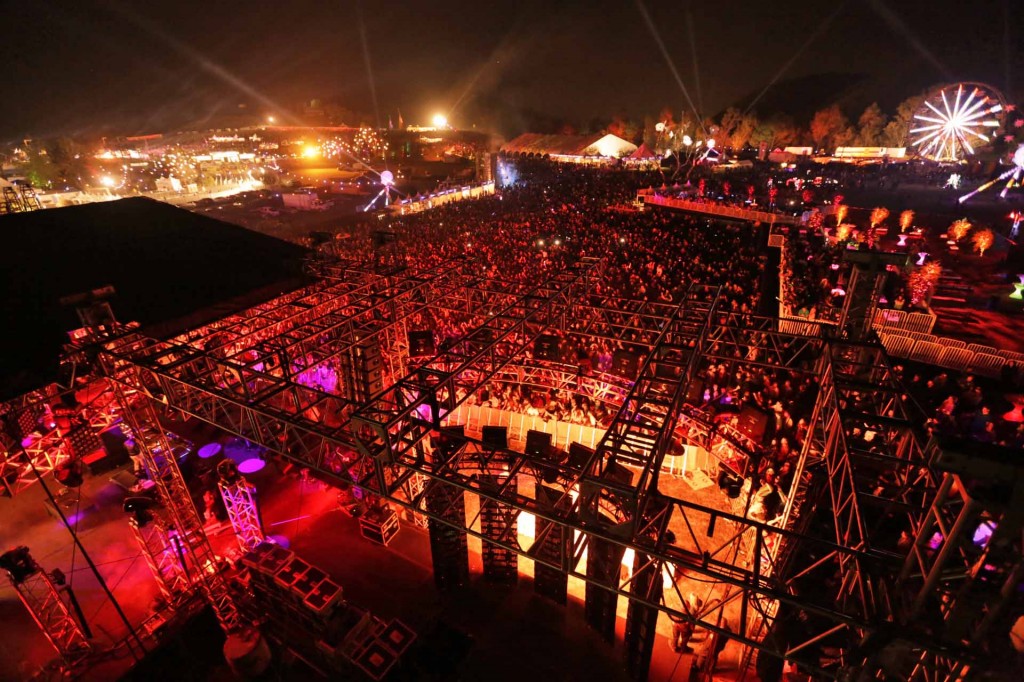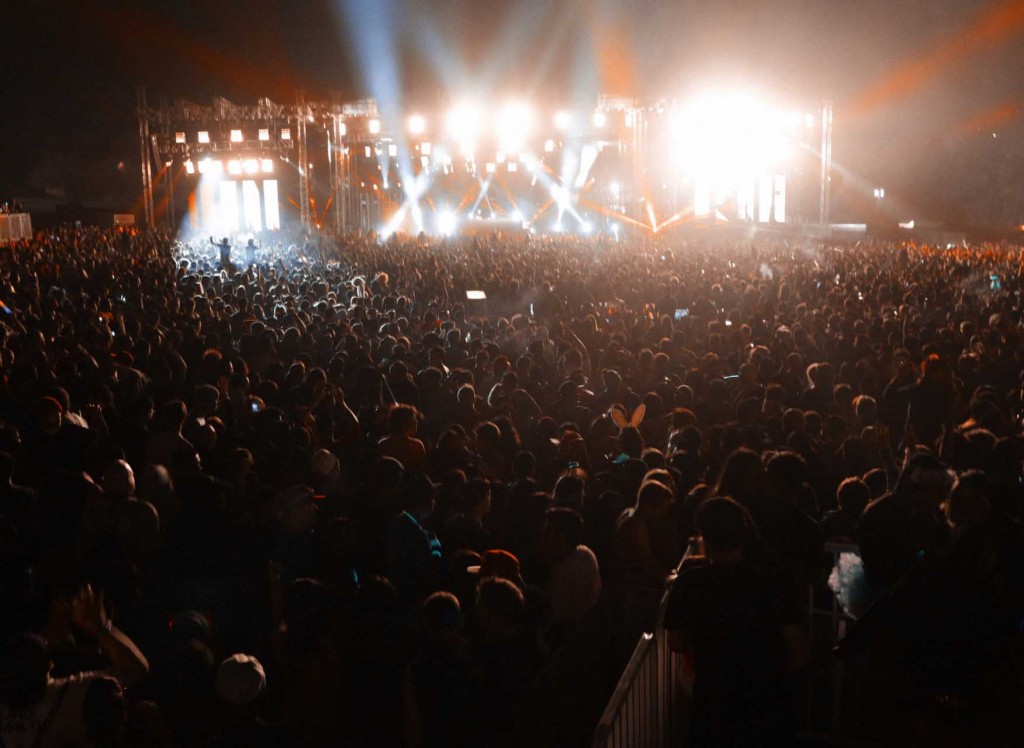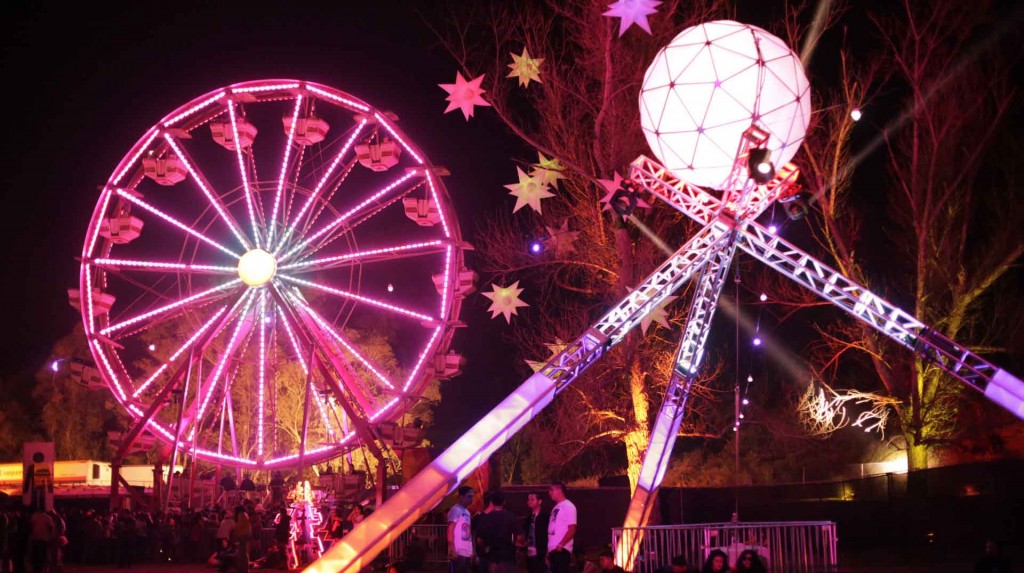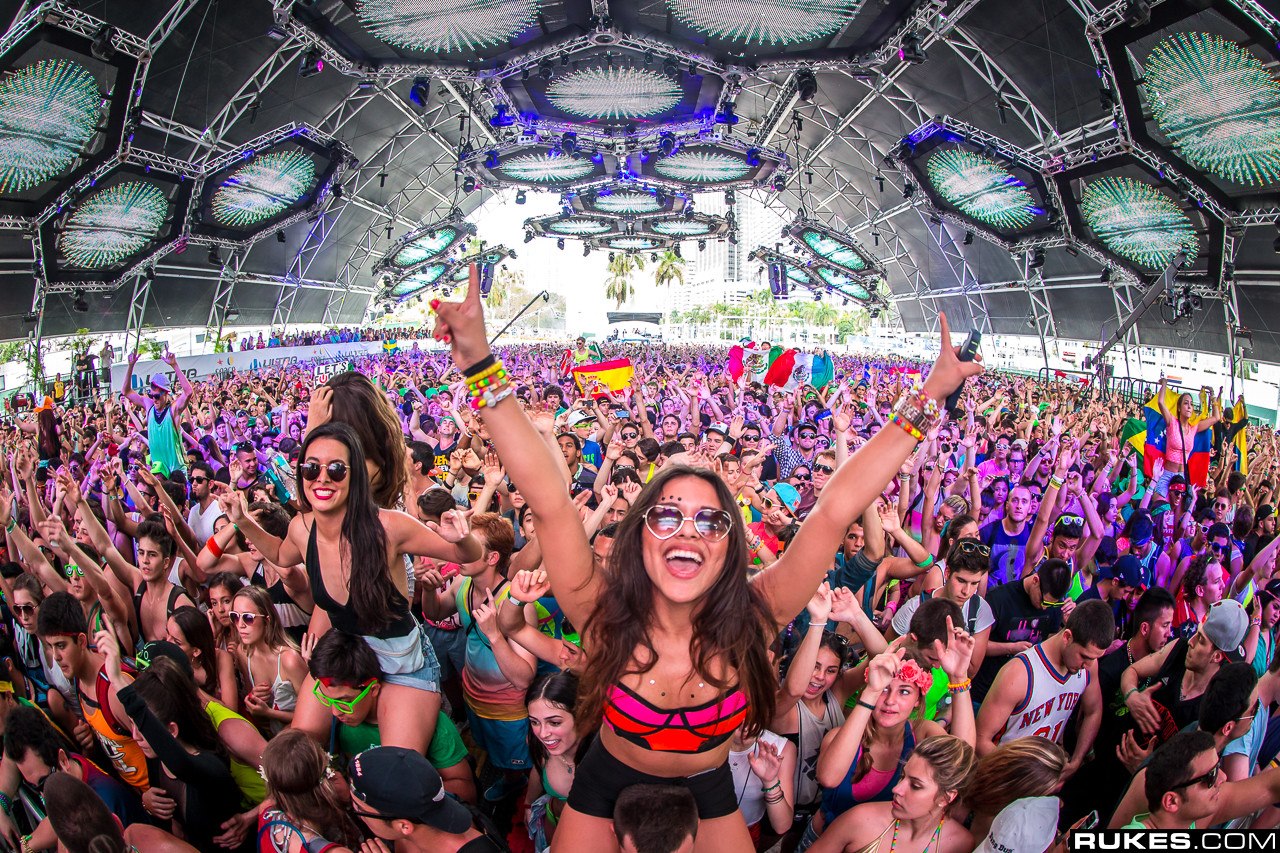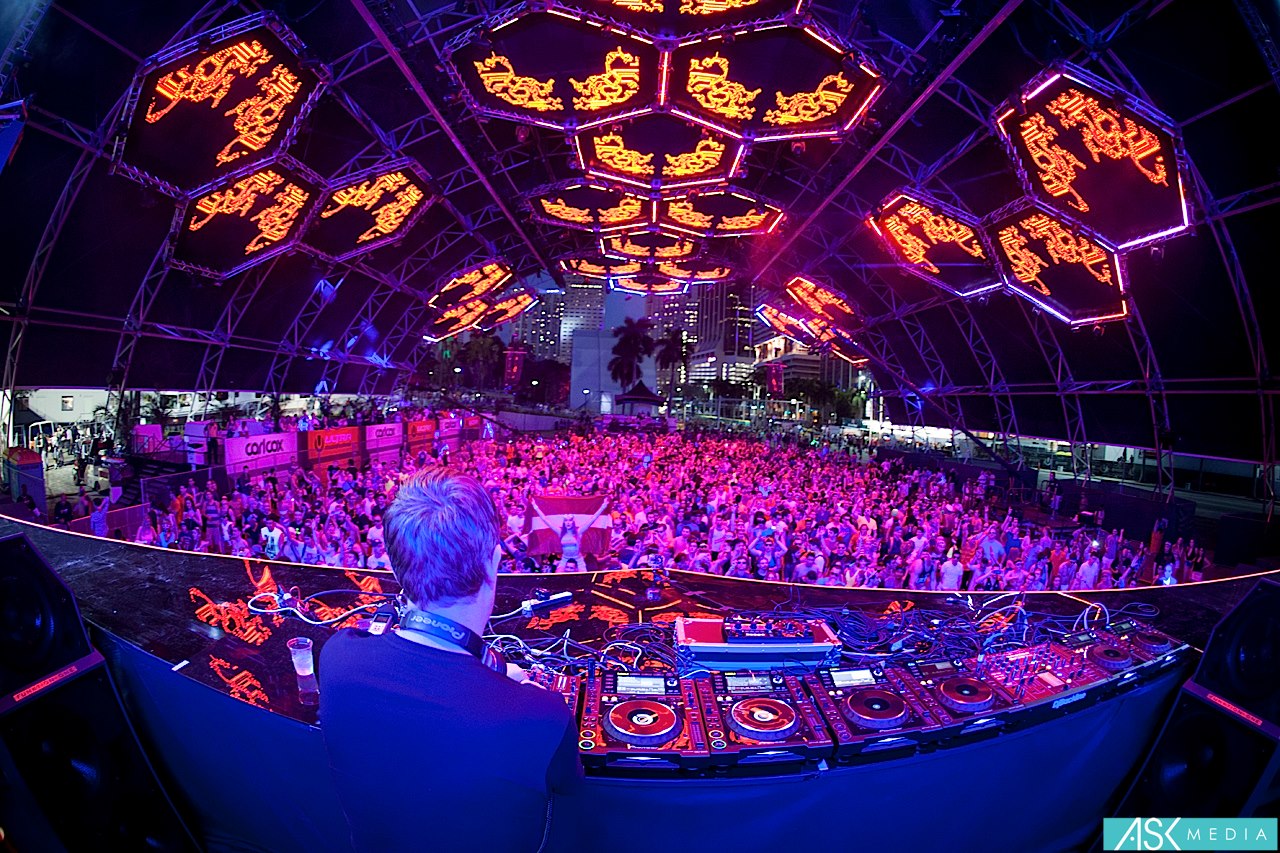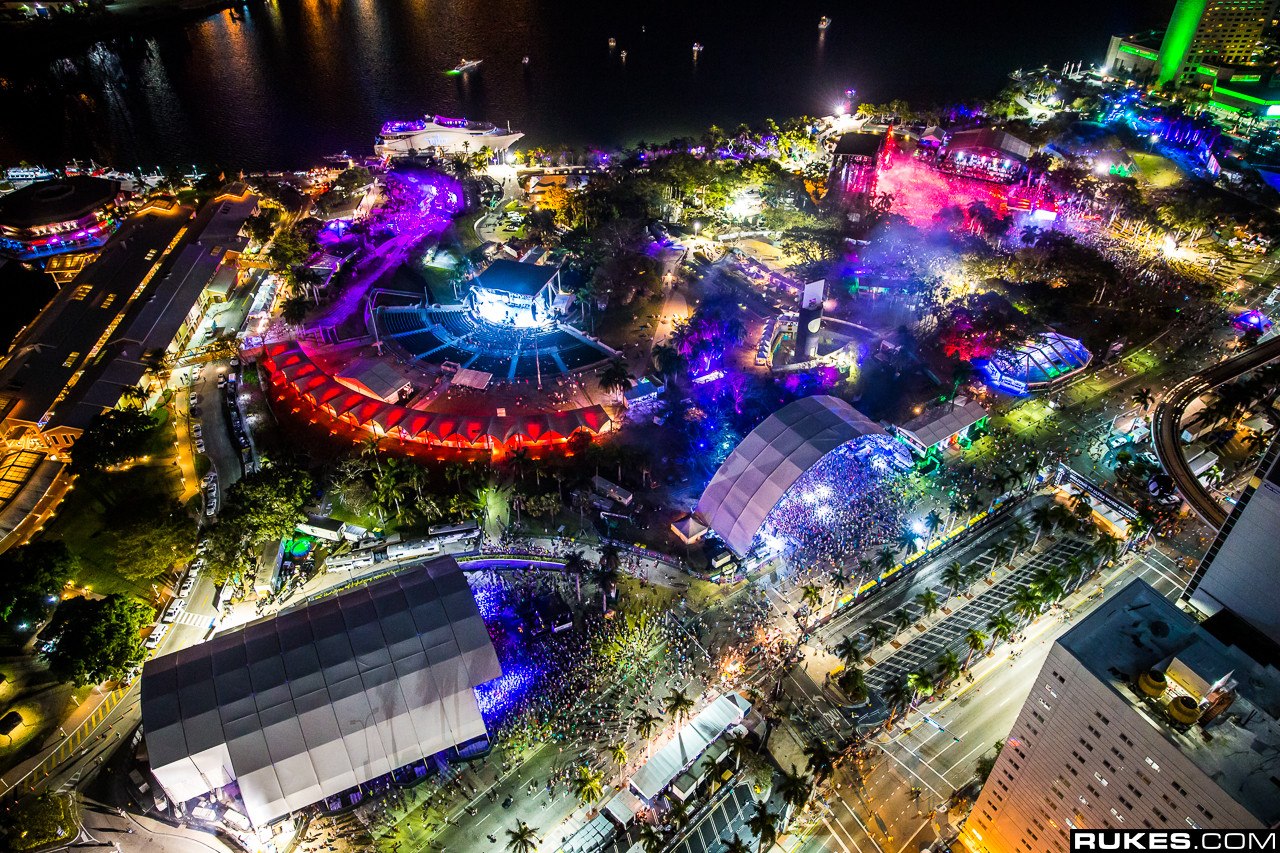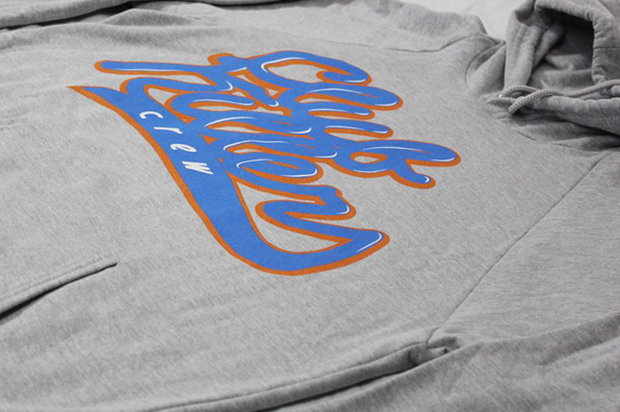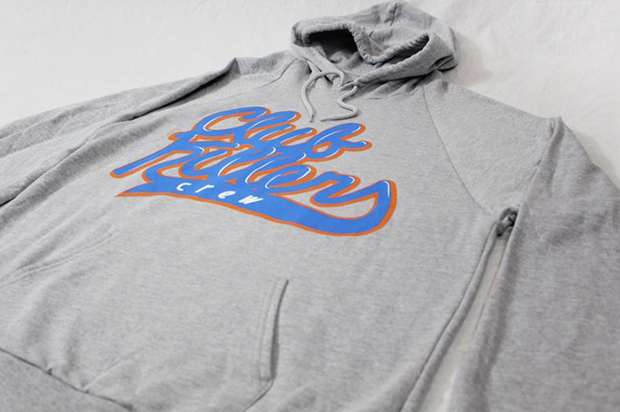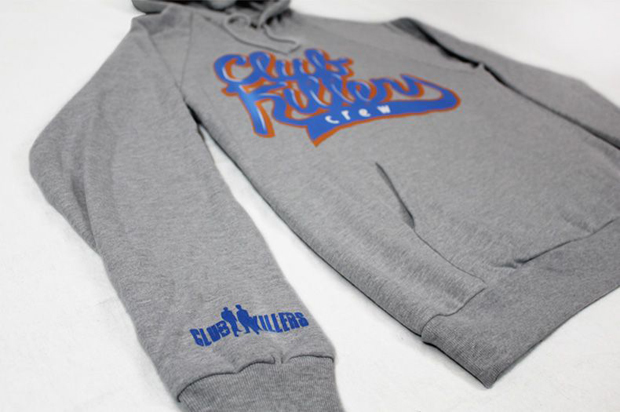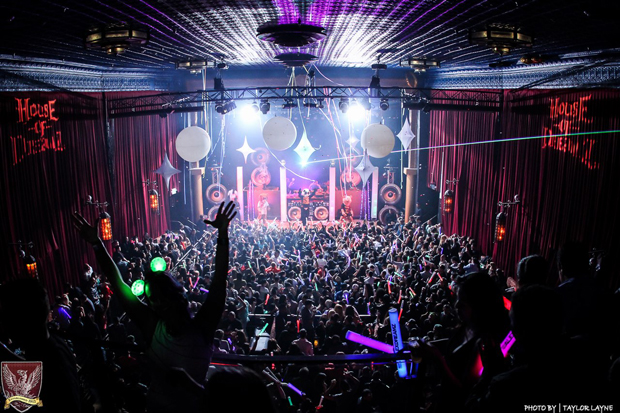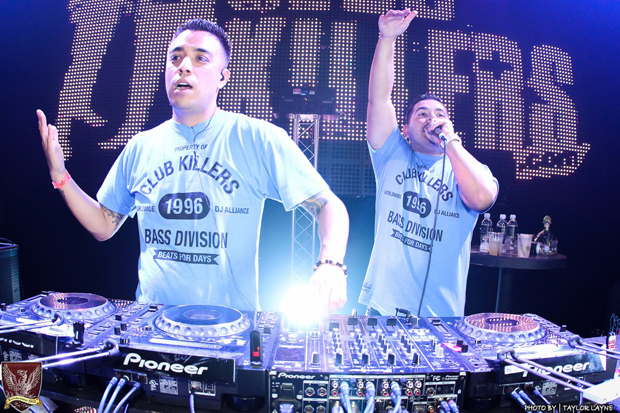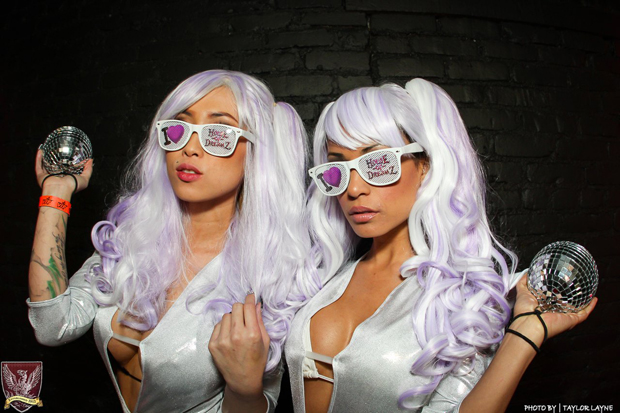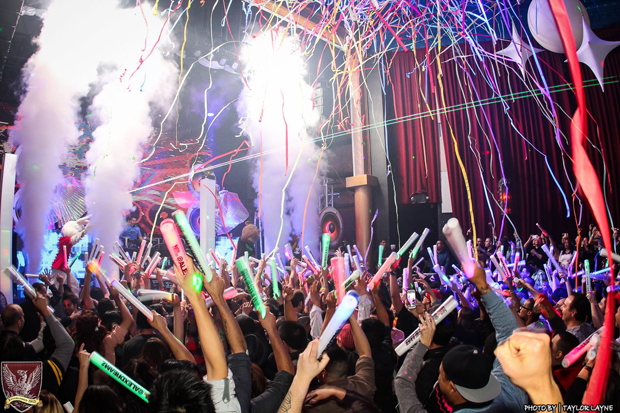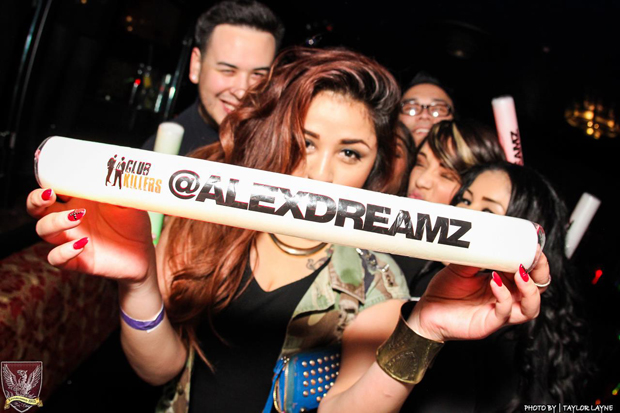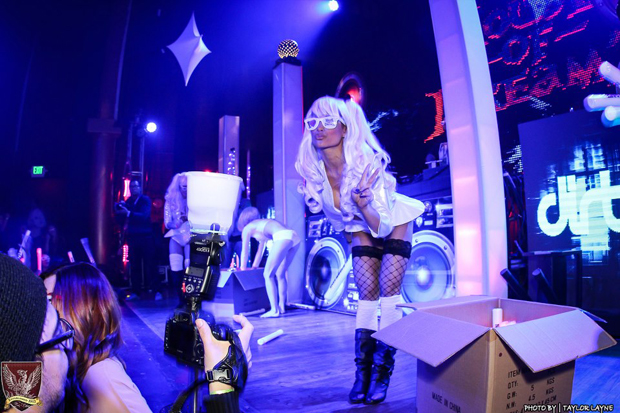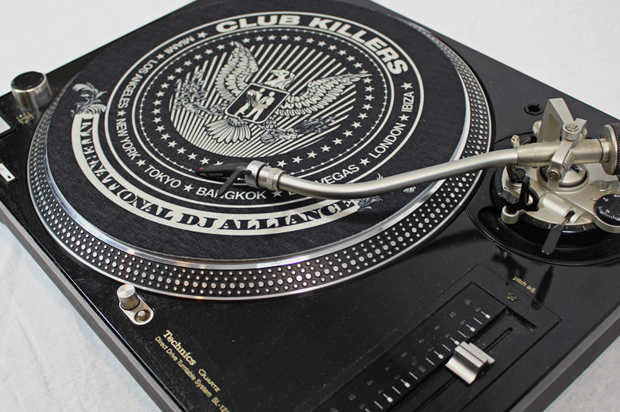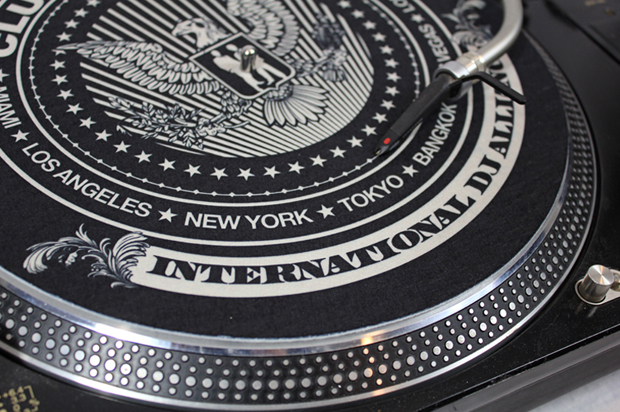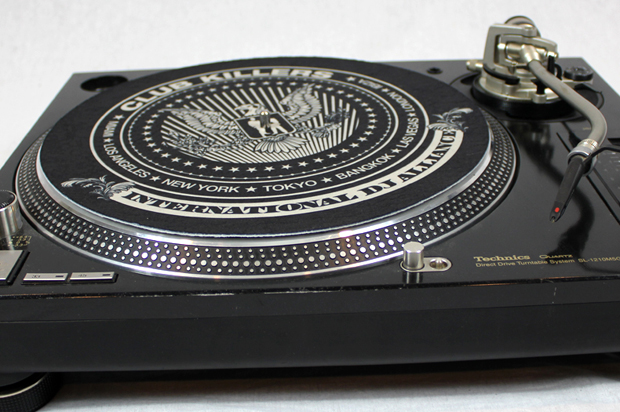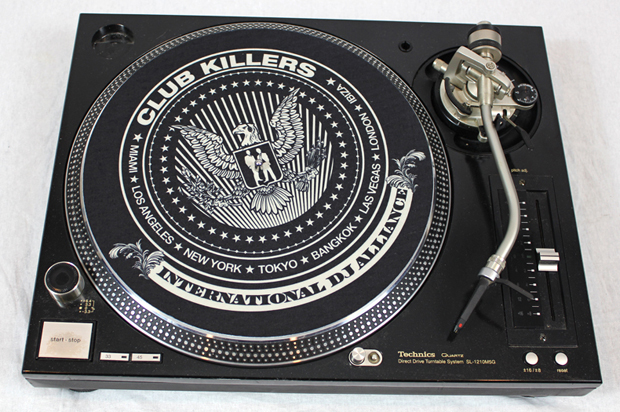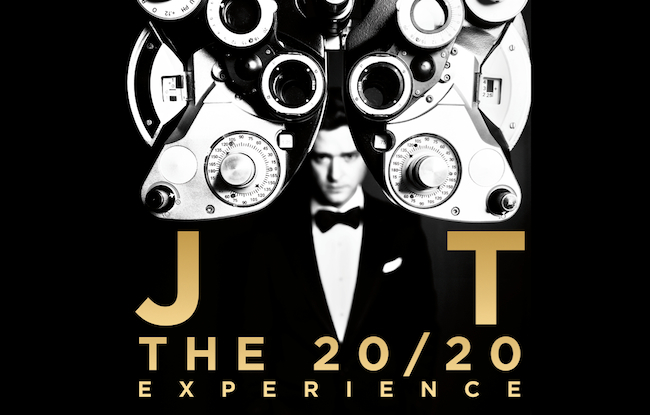
Justin Timberlake sells 968,000 copies in first week.
The numbers are officially in. Justin Timberlake’s “The 20/20 Experience” has managed to sell an impressive 968 thousand copies in its debut week, just barely missing the one-million mark on his third solo album.
After a week of building speculation, “Billboard” is reporting that the star’s comeback album earned him an easy number one debut on the album charts. It was also the best sales week of his solo career, topping his previous two efforts by a significant number.
“The 20/20 Experience” saw the best first week of sales since Taylor Swift’s “Red” sold one-point-two million last October. The album, which features hit singles “Suit & Tie” and “Mirrors,” also gave JT the third-biggest sales week ever for a solo male artist, after Usher’s “Confessions” and Garth Brooks’ “Double Live.”
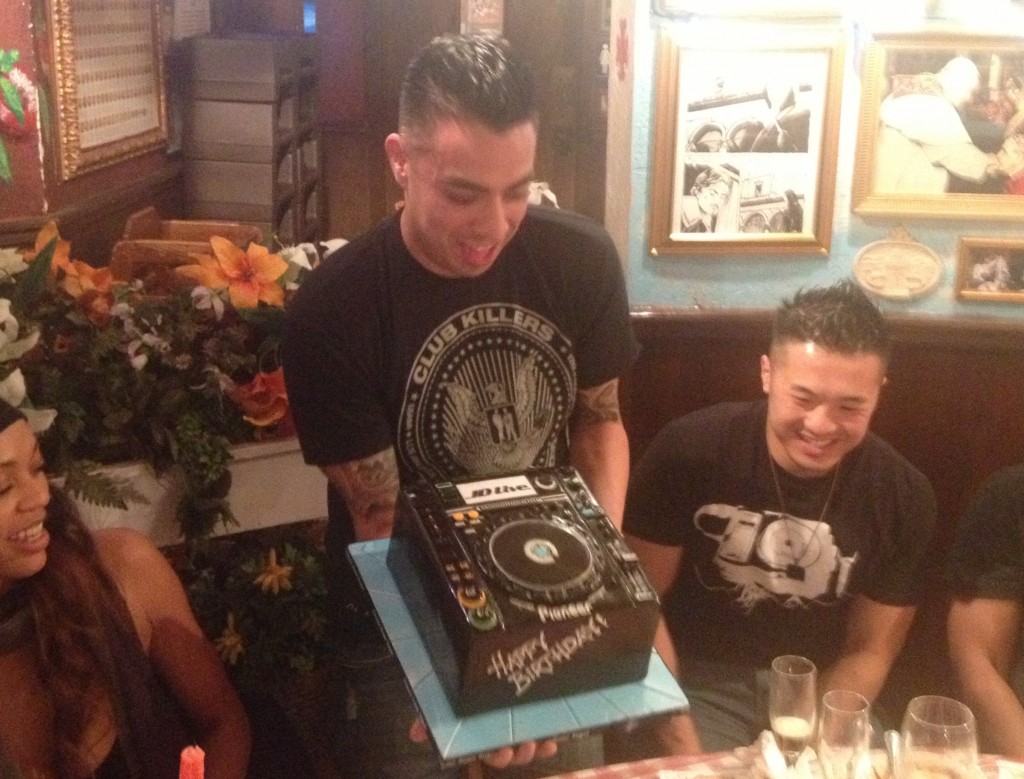
Happy birthday JD Live.
This past week we were back in Las Vegas to mingle with the DJs, promoters, and nightclub operators at the Nightclub & Bar convention but, most importantly, we were in sin city for a special birthday gathering to celebrate a very important member of the Club Killers family JD Live!
Special thank you to all the DJs who came out for the dinner and celebrated with us afterwards at JD’s residency, Surrender Nightclub inside The Encore Hotel. A very special thank you to the lovely DJ Jenna Palmer for bringing us all together. To say thank you for all those birthday wishes JD is hooking you up with an hot new bootleg pack. What a class act. Happy birthday JD Live. CLICK HERE TO GO DOWNLOAD.
Connect with JD Live
Facebook – www.facebook.com/djjdlive
Twitter – www.twitter.com/jdlive
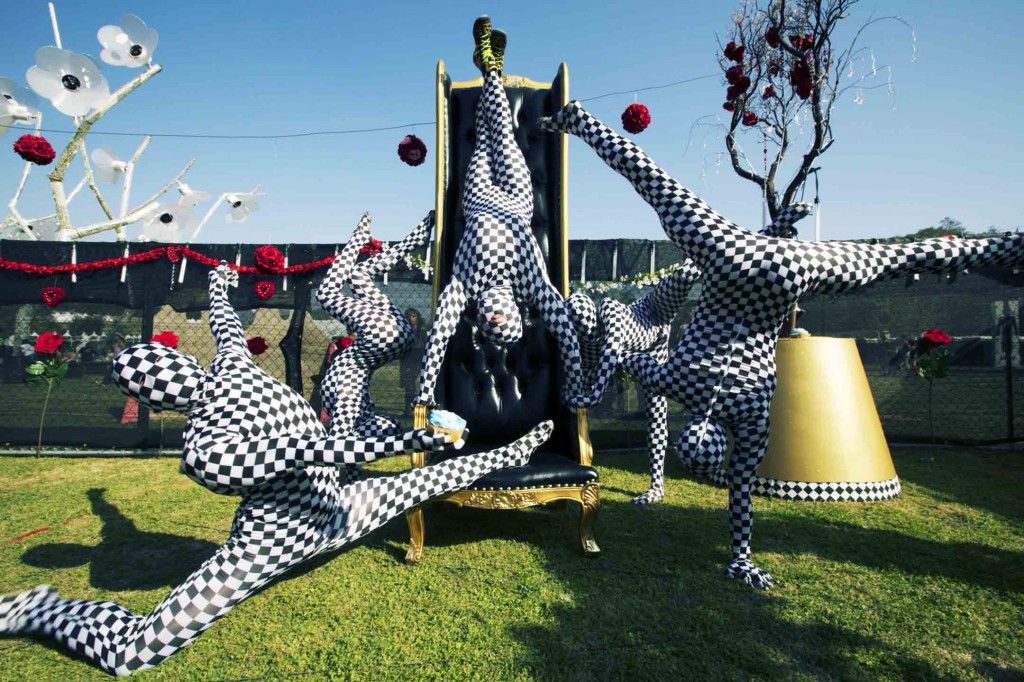
Beyond Wonderland 2013 Recap by Nightclub Ninja
Well, that was a bust. Beyond Wonderland proved to me one of two things: A) I’m hella lazy and B) I’m hella out of shape. And so was everyone else—and I’m not just talking about the girls who really, really, REALLY should understand walking around in your panties is a privilege for a select few, not a right for everyone.
I’ll back it up a bit. In case you’re out of the loop, Insomniac Event’s Beyond Wonderland was held on Saturday, March 16, making the move from its previous home at the NOS Center all us ravers have become so familiar with. But change is good, right? Eh, not so much in this case. While the new location at the San Manuel Amphitheater and Grounds was waaaay more picturesque tucked away in the hills (making cell phone service at a festival even worse than ever), it was those darn hills that posed the biggest challenge for sober and sauced partiers alike.
If you’re like me, you enjoy bouncing around from stage to stage to soak in as many sets as possible. But I didn’t know “hiking stick” was an accessory I should have added to my arsenal because the sheer magnitude and terrain of schlepping back and forth, up and down a steep hill would suck up so much of my music-listening time. After about the fourth or fifth time nearly tumbling like Jack and Jill on the crowded hill, I gave up and parked my tired ass in the VIP area the main stage for the rest of the night.
But what about the music? Thankfully that’s where things got better, and least for a bit. One of the earlier sets of the day (and atop ye old big-ass hill) was that of Blake Jarrell, doing his damnedest to rock out on the Madhatter’s Castle stage and successfully drew ’em in. Though my friends and I did dub this particular stage the “Backyard BBQ stage” because of the ghetto-ass pop-up awnings that were put over the booth for shade. C’mon, Insomniac, you’ve built the largest temporary tent structure in the U.S. before! Spring for something with more pizzazz.
Standouts of the day included deep/tech house spinner Trent Cantrelle—who’s already got dope productions and had the main Queen’s Domain stage rocking out without copping out. Bassjackers up next apparently didn’t get the memo and I could have dipped my over-priced nachos in all that cheese he was banging out. Thankfully Umek saved the day and educated the crowd with legit techno whether the crowd knew they just got an important lesson or not.
After missing all of Markus Schulz because a predetermined meetup was—you guessed it—back up that fucking hill, thus missing his entire set because walking back and forth took so long, the torture began with the same obnoxious outdated Dirty Dutch crap Chuckie was playing earlier in the day at Ultra. Dude. Your set was broadcasted on Sirius XM at the exact time people were making the trek from L.A. to San Bernardino and stuck in freeway traffic. Quit being as lazy as I am with my walking and mix it up a bit. Lord knows you make enough money to put in some effort. Oh and by the way, whatever song you shouted out as “your new track” sounds like all the other shit that’s out.
The nightmare continued with David Guetta. Always willing to give DJs I can’t stand one more chance, I figure the vibe at Beyond Wonderland would tip him off that this is a festival and you can take some risks. Nope. Same Guetta, different day. Boring. And closing out the night, Steve Angello, who claims he wants to dig deeper, could have done that. But I didn’t stick around to find out because when debating to stay till the end to find out what direction he was gonna go, leaving early to try to beat parking lot traffic and get back to L.A. before the sun was up took precedence. I still think I would have gotten a lot more set absorption in (and BETTER sets from lesser-known DJs) if it was still at NOS and you could move freely throughout the festival. That or I’m just a jaded old skool raver whining about the good ol’ days. But if it’s at the same venue next year, I’m getting a fucking Hoveround and giving it another go.
-The Nightclub Ninja
@NightclubNinja
*These are personal views of Nightclub Ninja, not those of ClubKillers.com.
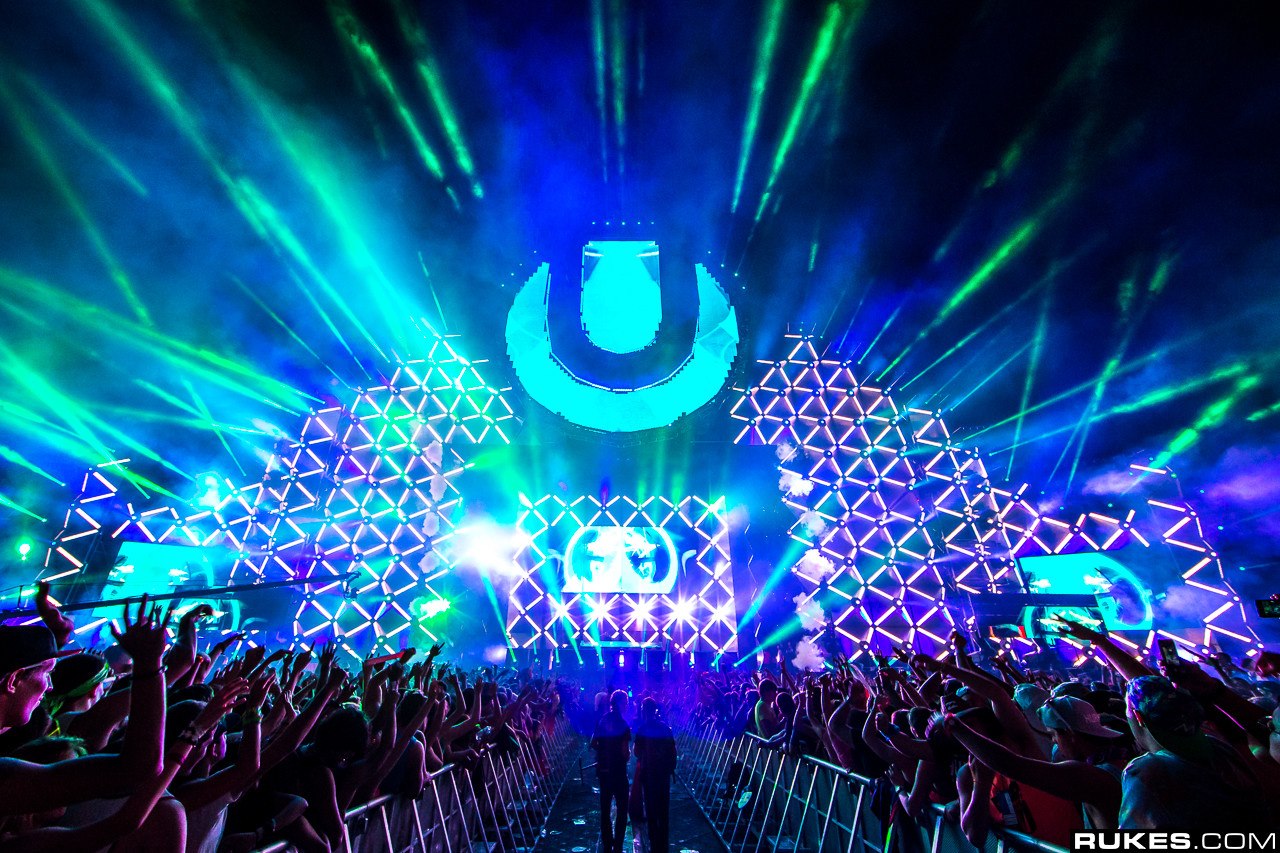
“My Ultra Music Festival Experience” by DJ Obscene
First off, a big HELLO to all the Club Killers family worldwide. I’m writing this merely a few hundred feet away from the massive festivities that took over my block for the past weekend, known as Ultra Music Festival (UMF). I had the pleasure of attending all three days during Weekend 1 and I must say I had an amazing time. I’m excited to bring you a first-hand account from the eyes of a local DJ born and raised in Miami, who’s seen this festival grow and morph over the years into the behemoth it is today.
Day 1 I took it a bit easy, catching Nicky Romero, John Digweed, Afrojack & Swedish House Mafia. As the sun set, Nicky Romero kept the crowd energy high, limiting his set to mostly familiar tracks and remixes of his own tracks. I wasn’t planning on catching Afrojack’s set, but I ended up there anyway to hear his bleepy-bloopy performance mostly composed of his own records, plus a few off-key bootlegs and even a sound issue midway through his set which allowed me a much-needed bathroom break. Swedish House Mafia kept the crowd engaged with an exciting video & light show while playing a collection of their hits with a dash of new tunes. Many people were raving over their performance the day after, but personally I liked their “set” at last year’s Masquerade Motel better. Although I wasn’t expecting to hear something new or groundbreaking, their set left me wanting a bit more, especially for their second to last performance as a trio.
Day 2 started off more enjoyable with a high-energy set from Chuckie, although I could have done without him asking everyone to “Put your hands up, put your fucking hands up” literally every 2 minutes. He had a couple of rough transitions in his 1-hour set but at least he was actually DJing live which has to count for something nowadays. My favorite set of the weekend belonged to Hardwell whose awesome balance of new & familiar tracks brought continuous energy that didn’t let the crowd breathe for more than 10 seconds. I was surprised to hear him drop the Steve Aoki Remix of “Pursuit of Happiness”, but it shows how in tune he is with the people, serving up a brand new track and following it up with a crowd favorite. Hardwell is a sick DJ indeed, and I was very impressed. After Hardwell, I was amped to check out Dirty South who did not disappoint. He played some dirty synths and grooves that had the crowd going nuts and packed in all his well-known records in a way that was meant to satisfy Dirty South fans as well as those who may not have been up on game. After this I ran to check out Kaskade at the Main Stage before I had to cut my night short to go DJ. I would say Kaskade played a set that was just slightly above average compared to what I’ve heard from him live.
Day 3 was my favorite day hands down. I started off the afternoon with Thomas Gold who completely tore the stage to shreds. His super clean transitions, quick mixes and build-ups really got the crowd engaged and didn’t allow for any downtime or lapses during his set. Mr. Gold played straight banger after banger all mixed with intention and precision like a true DJ. I stayed to hear Alesso for a bit although I had heard him play twice before and found it super boring. This time, he actually surprised me and played a way harder set than I thought he was capable of. Kudos to Alesso for changing my mind about him with this set. Tommy Trash was a bit of a bore, playing mostly his own records to a 1/8 capacity Main Stage, which gave me the perfect reason to run over and check out Flosstradamus, who I had never experienced live. This was definitely the most packed this stage had been all weekend and everyone was going APE SHIT. Between a mix of Trap, Dubstep and God knows what else, they had the crowd going just about as crazy as they had been over the three days. Wolfgang Gartner served up a dope set, mostly comprised of his own music, but we all know how great that sounds. I stayed after to hear Steve Aoki play some dope new songs at the beginning of his set that were well received by the crowd, but regretfully I didn’t stick around long enough for any cake throwing. Major Lazer was up next and they had the Amphitheater going bananas, like a house party with 3,000 of your closest friends all losing it. They played a wild mix of music including Moombah, Dancehall, Trap, Hip-Hop, Electro, basically if it had a beat, they were open to playing it. The crowd went nutty when Diplo instructed everyone to take their shirts off and join him in a shirt-waving motion a-la Petey Pablo and they even got the whole place crunk by playing local favorite Ace Hood’s record “Bugatti”. Snoop Dogg took the stage right after and although I was scared he was going to do a whole Snoop Lion schtick, he actually stuck to his guns and delivered an incredible performance of all his hits, with the DPG homies Daz & Kurupt joining him for the first half of his set. I was surprised to see that many people at the Live Stage for Snoop with Tiesto on one end and Bassnectar on the other, but the crowd was really into it, myself included. I lost myself in a sea of people after that for Tiesto’s performance, but since I was packed in between an ocean of people I just dedicated myself to making it out alive rather than paying attention to his set.
All in all I had a great weekend at UMF. I can definitely vouch for the proliferation of commercial House & Electro music at this year’s festival as compared to years past, but I’m also glad to see them embracing other genres by including Snoop Dogg, The Weeknd, Flosstradamus, Matt & Kim and a plethora of Indie acts. The only thing I’d like to see more of at Ultra would have to be local talent. There has always been local talent sprinkled in at UMF throughout it’s 15 year run, but with so many larger than life names in the EDM world nowadays, those days of Local DJ’s getting a shot to play at UMF seem to be long gone….
– DJ Obscene
(DJ Obscene is long time Miami DJ known for his popular weekend mixshow “Club 100” on Miami radio staple Y100.7 & a Club Killers offical DJ. For more info on Obscene please visit www.obscenesounds.com)
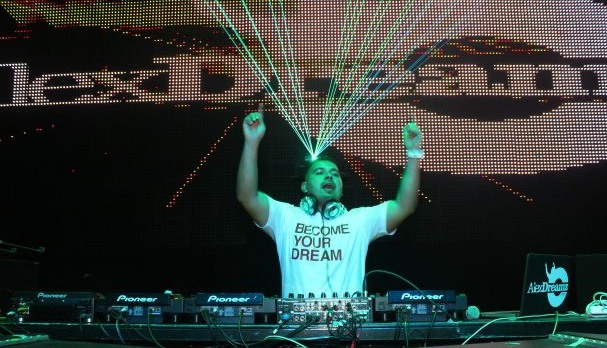
A few words from DJ Alex Dreamz.
I’m sitting here at the KIIS FM studios in Burbank, California trying to think of what to write for my first blog post here on the Club Killers Blog. What really interest you? What do you really find intriguing? Same things that arouse my curiousity? I’d like to think most of us are essentially from the same cut, hard working people trying to take it the next level regardless of what level in your respective field you’re at. If not? Ask yourself “what did I do today to make myself better?”. Really, think about it. We “should” keep pushing our own creativity & consistenly be refining our finely honed skills, Right? (If you’re not a DJ insert your own career & apply it to your own trade, it works out. Trust me. I’m not a journalist. LOL)
In my field, that of a DJ (radio/club/etc) it has changed so much since I started in 1996, the technology, the style, & in particular the ridiculous pay rates some DJs are garnering. One thing has not changed is my unconditional love & fascination with the DJ culture, music & a DJs mind. I’ve always loved talking to DJs, what songs they love, how people react to when they play them at different clubs, touring/city experiences, etc. ClubKillers.com has in actual fact made this interest of mine grow immensly. Because of this site directly, I’ve had a chance to sit across from local historic pub DJs in Ireland to worldwide traveling DJs in Singapore, have some drinks with them, shoot the shit, & step in to their minds a bit to share some experiences of the DJ life. For example, it’s rather amazing to me to contemplate how DJ Bento, who is American born, has lived in Osaka, Japan for 6 years making a living off being lawyer by day & DJ by night. And still managed to build his own brand to become a international touring DJ! Had the honor of sharing stories with him over some excellent sushi in the beautiful city of Osaka this past month. I wish him well on his next venture, leaving lawyer life and focusing his efforts on business in Kuala Lumpur, Malaysia.
However, to get straight to the point & conclude this huge story I’m writing here I just wanted to take a few moments out & say thank you to the entire Club Killers faithful. This brand has truly been the underdog, nobody who was anybody believed in it at the fruition except for JD Live, John Cha, DJ Angle & David. We will keep changing the site, hopefully for the better (If not, we need to hear from you!). To me it’s like our Disneyland, it won’t ever be complete. I promise to continue to immerse myself in to the DJ culture & try to help bring to you what we feel is relevant to the working DJ. We will continue to take the extra step & put in that extra work to separate us from the pack, elevating our craft but at the same time helping yours.
Keep looking ahead.
– Alex
Club Killers podcast now on SoundCloud
Club Killers is a close knit circle of exclusive djs that support each other. We have created an official SoundCloud for official Djs. Now, with the launch of our website, we have made our SoundCloud available to our Club Killers members. Wanting to give back to our CK affiliates, we will now give an opportunity for our Club Killers members to post an exclusive mix for our SoundCloud. Their will be some criteria for members to be eligible, which include Djs to be a Club Killers member for a minimum of six months. Another qualification is, the Djs must have at least 2 years of Dj’ing professionally. You must also let us know why you should be picked to post your mix. Please dont forget to post your last mix in the submission, as well as promo videos (like this – Dj Beno Tokyo Promo), so we can hear what you got! To submit your entry for a Club Killers SoundCloud mix, please CLICK HERE! We will listen to all mixes (if qualified within the criteria), and cant wait to hear you next on our official SoundCloud! This will be the first time a CK affiliate will be featured on Club Killers Radio.
Until then, make sure to listen to our official ClubKillers Djs Today!
Club Killer has now added all recent podcast to SoundCloud!
Make sure to follow us on SoundCloud: http://soundcloud.com/clubkillers
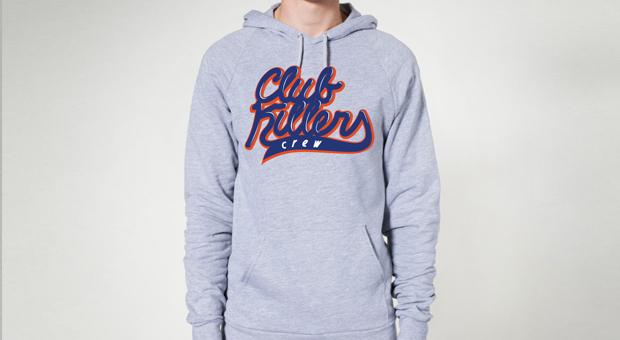
Club Killers Pull Over

Welcome to ClubKillers.com, where everything is for the djs, from djs. From everything from dj necessities, such as slipmats and jetpacks, to the freshest gear that will only be available to the club killer family. Here is the very first product that has become available, the “The Killers Crew Sweater“. This sweater is exclusive to this site, and exclusive to our members. This hoodie fleece crew sweater is a top quality American Apparel product. Featured in grey, it has a kangaroo pocket, and the distinctive Club Killers Crew logo in bold blue and orange lettering. The above picture is the mock up of the design, and below are pictures of the final product, which came out exactly how it was designed. Something very light, on the go, but durable for the after hour weather.
The Killers Crew Sweater is currently available in Grey, sizes M – 2XL
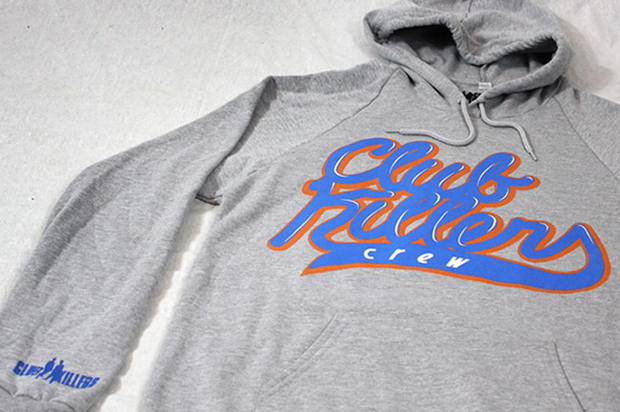
Crew Love
Rep Our Crew
Killin The Club
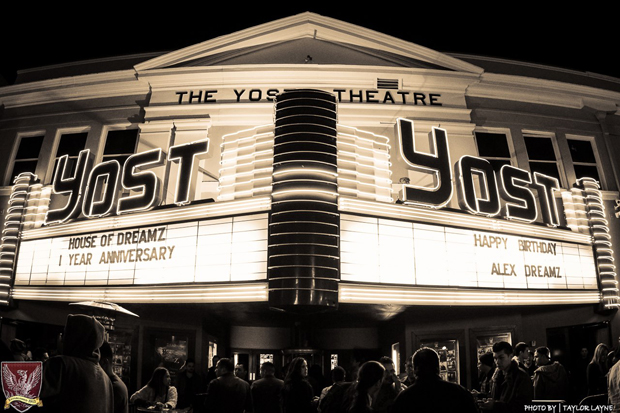
House Of Dreamz For Alex Dreamz B-Day @ Yost Theater.
We have exclusive pictures of the Club Killers official event, called House Of Dreamz. This event was really important for us, for two different reasons. One because it celebrated the House of Dreams 1 Year Anniversary. Second, because it was Official Club Killers DJ Alex Dreamz Birthday. For this event, it was held at The Yost in Orange County, California. The buzz around the event was nothing short of spectacular. With the party completely SOLD OUT, from General Admission, to V.I.P, to all tables and bottle service. Here are a few pictures of the event that will not be forgotten!
The sold out Yost Theater…
JD Live & DJ Alex Dreamz rockin at the same damn time…
Shiny Disco Balls
If one image can describe the energy of this night it is this pic below…
Happy Birthday DJ Alex Dreamz
Cant Wait For The 2 Year!

DJ Bento in Tokyo, Japan
Last week, Club Killers Official Dj, Dj Bento, performed for the people in Tokyo, Japan. Follow him through the lens as he arrived in Tokyo via helicopter, and takes every view with him to Japan. With Club Killers Djs in demand all over the world, videos have been posted regularly of performances, both Nationally and Internationally. Come join Dj Bento as he kills ColoR in Tokyo, Japan. Japan is known for their over the top events, props, shows, and good times. So sit back, relax, and welcome to Tokyo!
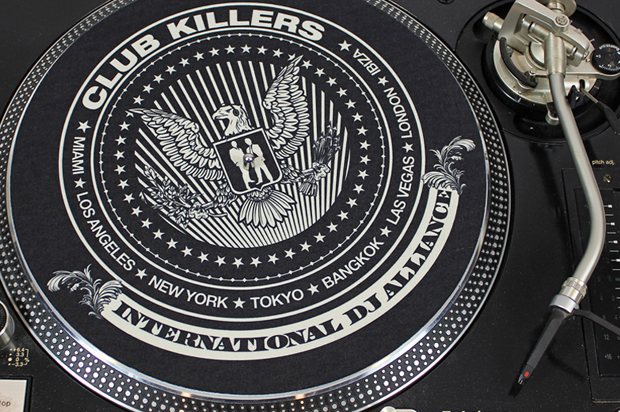
Club Killers International Dj Alliance Slip Mats
Club Killers is your one stop destination for all your needs. Only available for our exclusive members, Club Killers products are sought out by many, but only obtained by a chosen few. Today we have the Eagle Slipmat, which is a item that every Dj must have. From beginner to intermediate, every Dj had an old crusty slipmat that was faded and worn. Well those are the days of the past, and todays standards are much higher. Club Killers does not only represent what the elite means, but also shows it with spirit. With the exclusive Club Killers Eagle Slipmat, you will attract party goes eyes as well as other Djs with a distinct, one of a kind exclusive slipmat that is only made for our team. From cities in the U.S, to cities such as Tokyo, Ibiza and Bangkok, we are all on a worldwide level. The Eagle Slipmats are available now in the Club Killers Store!
“Eagle Slipmat” is currently available in Black
International DJ Alliance
Birds Eye View
Which City Are You?

Club Killers in Asia
In the Spring of 2012 the Club Killers crew embarked on a tour through Asia including Japan, Singapore, China, & Taiwan to search for up & coming local talent. DJ Bento, DJ Kaku, & DJ Inquisitive joined JD Live & Alex Dreamz to form the Club Killers international DJ alliance.
As of this past weekend, Club Killers has set up a new office in Tokyo, Japan! We will soon be announcing our Club Killers asia official DJ’s, along with an official Club Killers launch party!!!
Make sure to keep up with us on facebook and instagram!
Official Fan Page www.facebook.com/clubkillers
Official Instagram: @Clubkillers
